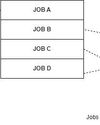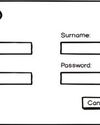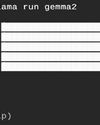
ARIA is an acronym that stands for Accessible Rich Internet Applications, which is a bit of a mouthful, but it's important to understand what ARIA is for, and it's all right in the name. The first A is Accessible, which makes sense—we all want our work to be accessible. The last three letters in the acronym should be taken as a group, referring to Rich Internet Applications (https://en.wikipedia.org/wiki/Rich_Internet_Application), which, as per Wikipedia, are "web application[s] that ha[ve] many of the characteristics of a desktop application… and may allow the user interactive features such as drag and drop, background menu, WYSIWYG editing, etc." Over the history of the internet, we've seen the web evolve from static sites, to simple applications in the browser, to the complex, distributed web applications we have now. First introduced in 2015, ARIA has always been meant for complex web applications, not simple pages or sites like blogs.
Esta historia es de la edición November - December 2024 de CODE Magazine.
Comience su prueba gratuita de Magzter GOLD de 7 días para acceder a miles de historias premium seleccionadas y a más de 9,000 revistas y periódicos.
Ya eres suscriptor ? Conectar
Esta historia es de la edición November - December 2024 de CODE Magazine.
Comience su prueba gratuita de Magzter GOLD de 7 días para acceder a miles de historias premium seleccionadas y a más de 9,000 revistas y periódicos.
Ya eres suscriptor? Conectar

Exploring LangChain: A Practical Approach to Language Models and Retrieval-Augmented Generation (RAG)
LangChain is a powerful framework for building applications that incorporate large language models (LLMs).

Threads, Asynchrony, Parallelism, and Concurrency in C#
The concepts of process, thread, and task are fundamental to understanding the working of an operating system. You should have a good understanding of threads and how they work to learn asynchrony, parallelism, and concurrency. This article discusses the concepts related to these concepts in detail with relevant code examples wherever appropriate.

Career Development and Staffing Reinvented
You think great talent and cool positions only exist in Silicon Valley? Think again!

Can an LLM Make a Video Game?
In the Summer of 1980, I played Asteroids at a gas station in rural West Texas. I stood on a stool to reach the controls and see the screen. Ever since then, I’ve wanted to make a video game. I’ve also wanted to have the time, skills, and resources to make a video game.

First Rule of ARIA: Don't Use ARIA
As you expand your accessibility knowledge, you've probably heard the term ARIA a few times, maybe with an explanation, maybe not. Let's start there: ARIA (https://developer.mozilla.org/en-US/docs/Web/Accessibility/ARIA) is a standard from the World Wide Web Consortium (W3C) (https://www.w3.org/) via the Web AccessibilityInitiative (WAI) (https://www.w3.org/WAI/).

Exploring .NET MAUI: Data Entry Controls and Data Binding
In the first parts of this ongoing series on exploring .NET MAUI (https://codemag.com/Article/2408041/Exploring-.NET-MAUIGetting-Started and https://codemag.com/Article/2409041/Exploring-.NET-MAUI-Styles-Navigation-and-Reusable-UI), you created your first .NET MAUI application and ran that application on both a Windows computer and an Android emulator.

CODE Magazine Presents: The State of AI Mini Conference Tour
CODE has recently started a new series of inperson events focusing on the topic of artificial intelligence and its practical uses in business scenarios.

AI with No Internet Connection
AI, or artificial intelligence; are you bored of hearing about of it yet? Between the stock market and CEO keynotes, we can’t seem to get away from it. It promises to revolutionize everything around us.

CODE: 5 Years Ago
And just like that, we've arrived at the last installment of our \"30 Years of CODE\" celebratory column. Wow. Time flies! Seems like \"just the other day\" we had our 30-year anniversary celebration in Orlando, yet that was in December of 2023. But it's even wilder to think back five or six years. \"Just before the pandemic,\" really. How much has changed in those few short years!

Career Development and Staffing reinvented
You think great talent and cool positions only exist in Silicon Valley? Think again!